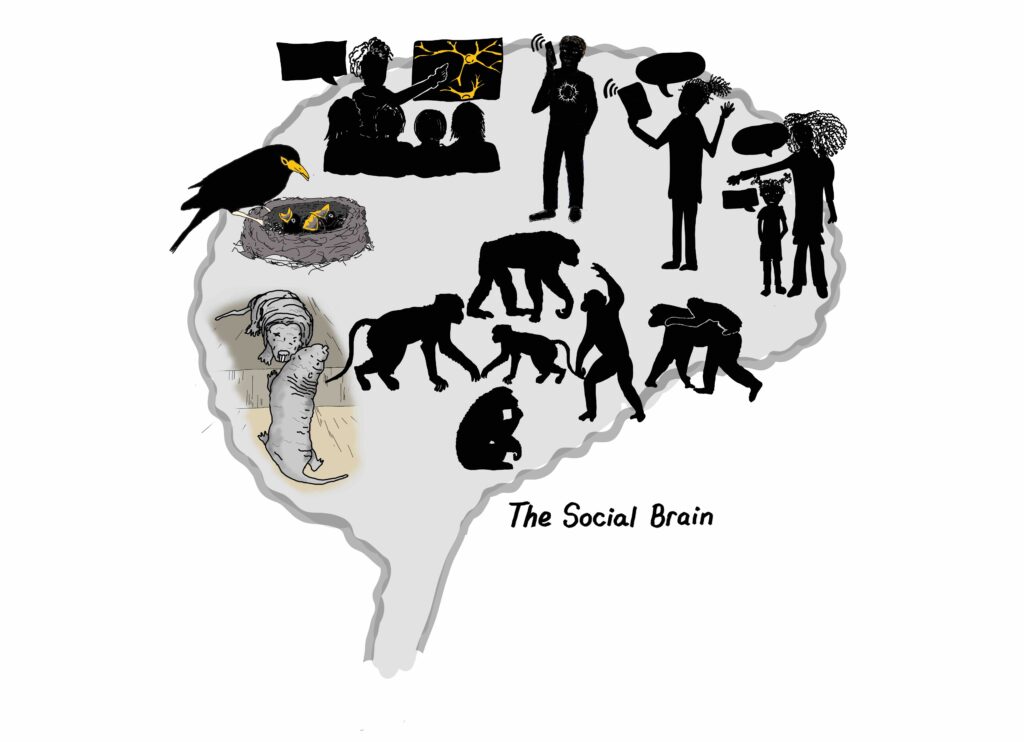
“This study emphasizes the increased health vulnerability of autistic people both in the types and number of conditions they may have”
Elizabeth Weir
Previous studies have shown that autistic people are dying far younger than others and that they are more likely to experience a range of physical health conditions. Until now, it was believed that autistic people were more likely to have specific conditions, such as gastrointestinal pain, sleep problems, and epilepsy/seizure disorders.
The new study is different in that it investigated a much wider range of health risks than has been done before and shows that autistic people experience a much broader range of health vulnerabilities than was previously thought.
Specifically, autistic people are more likely to have physical health conditions across all organ systems, including the brain (such as migraine), the gastrointestinal system (for example coeliac disease), and the endocrine system (for example endometriosis), compared to non-autistic people.
Dr Elizabeth Weir, a Research Associate at the Autism Research Centre in Cambridge, who led the team, said: “This study emphasizes the increased health vulnerability of autistic people both in the types and number of conditions they may have. We now need to understand the causes of these increased risks, which are likely multifactorial in nature.”
This is the first study to show that autistic people are more likely than non-autistic people to experience ‘physical health multimorbidity’, meaning that they have at least two or more physical health conditions. These include co-occurring fibromyalgia (which causes chronic pain throughout the body) and polycystic ovarian syndrome (which causes irregular menstrual cycles, infertility, excess hair growth, and acne in women) across different organ systems.
The study was conducted by a team at the ARC and used an anonymized, self-report survey to compare the experiences of 1,129 autistic people with 1,176 non-autistic people aged 16-90 years. The participants were international, although 67% of participants were from the UK.
The survey assessed risk of 60 physical health conditions across nine different organ systems (gastrointestinal, endocrine, rheumatological, neurological, ocular, renal/hepatic, otolaryngological, haematological, and dermatological). The analysis took into account other factors such as age, sex assigned at birth, country of residence, ethnicity, education-level, alcohol use, smoking, body mass index, and family medical history.
The team found that autistic people were more likely to have diagnosed medical conditions across all nine organ systems tested, compared to non-autistic people. Regarding specific conditions, autistic people had higher rates of 33 specific conditions compared to non-autistic peers. These included coeliac disease, gallbladder disease, endometriosis, syncope (fainting or passing out), vertigo, urinary incontinence, eczema, and iron deficiency anaemia.
Dr John Ward, a visiting research scientist at the ARC in Cambridge, who conducted the analysis, said: “This research adds to the body of evidence that the healthcare needs of autistic people are greater than those of non-autistic people. More research is required, particularly surrounding the early identification, and monitoring of chronic conditions.”
This is also the first epidemiological study to show that Ehlers-Danlos Syndrome (EDS) – a group of disorders that affects connective tissues and which cause symptoms such as joint hypermobility, loose joints that dislocate easily, joint pain and clicking joints, skin that bruises easily, extreme tiredness, digestive problems, dizziness, stretchy skin, wounds that are slow to heal, organ prolapse, and hernias – may be more common among autistic women than non-autistic women.
The new research also replicates previous findings to show that autistic people have higher rates of all central sensitivity syndromes, which are a varied group of conditions that are related to dysregulation of the central nervous system, compared to non-autistic people. Central sensitivity syndromes include irritable bowel syndrome (IBS), temporomandibular joint syndrome (TMJ), migraine, tinnitus, myalgic encephalomyelitis/chronic fatigue syndrome (ME/CFS), and fibromyalgia.
The new study also investigated risks of physical health multimorbidity with a novel application of ‘network analysis’, a technique used to understand relationships between different parts of a system. This analysis method is regularly used in neuroscience to understand how different regions of the brain interact with each other. In this study, the analysis assessed how often conditions from different organ systems occurred together in the same person. In addition to highlighting complex health needs, this analysis established for the first time that the combinations of medical conditions that frequently co-occur may be different between autistic and non-autistic adults.
These results are preliminary evidence that healthcare providers such as GPs or family physicians need to be monitoring the health care needs of autistic people much more closely.
Dr Carrie Allison, Director of Strategy at the ARC and a member of the team, added: “These findings highlight the acute need to adapt the healthcare system to better meet the needs of autistic people. These results must be confirmed in larger, population-based samples.”
Professor Sir Simon Baron-Cohen, Director of the ARC and another member of the team, said: “We are aware of the risks of mental health conditions in autistic people, but this new research identifies their risks of physical health conditions too. We need to urgently re-evaluate current health care systems to improve support for autistic people.”
Funding for this project was provided by the Autism Centre of Excellence at Cambridge, the Rosetrees Trust, the Cambridge and Peterborough NHS Foundation Trust, the Corbin Charitable Trust, the Queen Anne’s Gate Foundation, the MRC, the Wellcome Trust and the Innovative Medicines Initiative.
Reference
Ward, J. & Weir, E., Allison, C., Baron-Cohen, S. Increased rates of chronic physical health conditions across all organ systems in autistic adolescents and adults. Molecular Autism (2023).
Posted on 11/10/2023